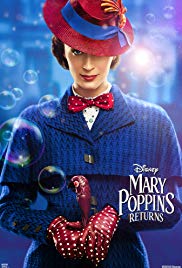An Interview with Paulina Lagudi
This interview originally appeared on Anthony Cawood’s ScreenWritingOpportunities blog.
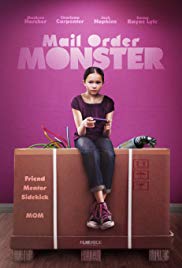 Paulina is the Writer/Director/Producer of the new movie Mail Order Monster (MOM). We delve into how she got started, how she gets films made and how MOM got made.
Paulina is the Writer/Director/Producer of the new movie Mail Order Monster (MOM). We delve into how she got started, how she gets films made and how MOM got made.
Thanks to Paulina for a really insightful interview
Q: Could you give me a little bit of background on how you got into screenwriting and filmmaking?
A: I really have to give a lot of credit to my fiancé, Cooper Ulrich, who is also the DP of Mail Order Monster. I had gone to school for theater, but after Cooper and I met, he convinced me that my ideas weren’t crappy and I was really good at bossing people around. I’ve always been casually writing, but didn’t get deep into screenwriting until I wanted to produce and direct. I never thought I was much of a writer, but now I get a lot of enjoyment out of it.
Q: From IMDb it looks like you usually write and produce what you shoot, so what came first for you writing, producing or directing?
A: Producing came first. I produced branded commercial videos first and even directed most of them. I then added writing into that mix when I wanted to make my narrative shorts.
Q: Many writers are advised to ‘film it’ themselves but many struggle to take this step – how did you do it and any advice for those contemplating this step?
A: Well, I can understand the hesitation because writing was a means for me to make work and build a directing reel. However, for those that are strictly writers, definitely just pick up even the cheapest camera and shoot it as cheap as you can first (I recommend you do this with shorts not features to start). Even if no one sees it, you’ll learn a lot about your writing through this process. I started editing my shorts and other works this year and it has taught me so much more about writing and directing. All the storytelling processes teach us more and more about how to connect our stories to audiences. So film it, then through that, recruit some collaborators that can help you expand on your next piece of writing.
Q: You also produce much of your output, how have you found the difficult area of raising funds? Any tips?
A: Well, I’ve become very poor lol. I’ve adjusted my means of living to accommodate my investment into my projects because that’s what I’m willing to do. This business isn’t easy and you have to be willing to give up a lot to continually practice your craft. When it comes to producing, you have to be really savvy. The business is changing for producers. Producers not only have to find funds and the team to make a project happen but also have to know how to market and distribute it in case that ends up being the best strategy for the project. A producer’s wealth comes from connections and time. The more people you know and the more projects you do that can “make a splash”, then you’ll level up to higher budget projects where it is easier for other people to give you money.
I’m actually redeveloping my Producer Bootcamp that takes people from script to release on their project. In general though, if your project can be made for a few thousand that is easy to raise through crowdfunding, but simultaneously builds an audience that you can stay engaged with, do THAT. But every project, especially features where it’s intended to be sold, is a start up. Look at it as a business that is selling a product. Therefore, you need a solid business plan that manages risk NOT one that shows potential gain. Investors are more likely interested in giving a project money that has a tax benefit to them even if the project makes no money. So, be savvy. There are also production and financing companies that exist in order to help find funding for your project if it has a solid package. That package typically includes some letters of intent from name actors and/or name creatives.
Q: You started with a couple of shorts, how did they come about?
A: I wish I had a simple answer for that. They kind of just happened. I would do them all SOO differently now in almost every way if I could, but those mistakes were made to learn from, so no regrets. They pretty much came from being around other creatives that were hungry to make something and learn just as much as I was. We put our heads together and created something.
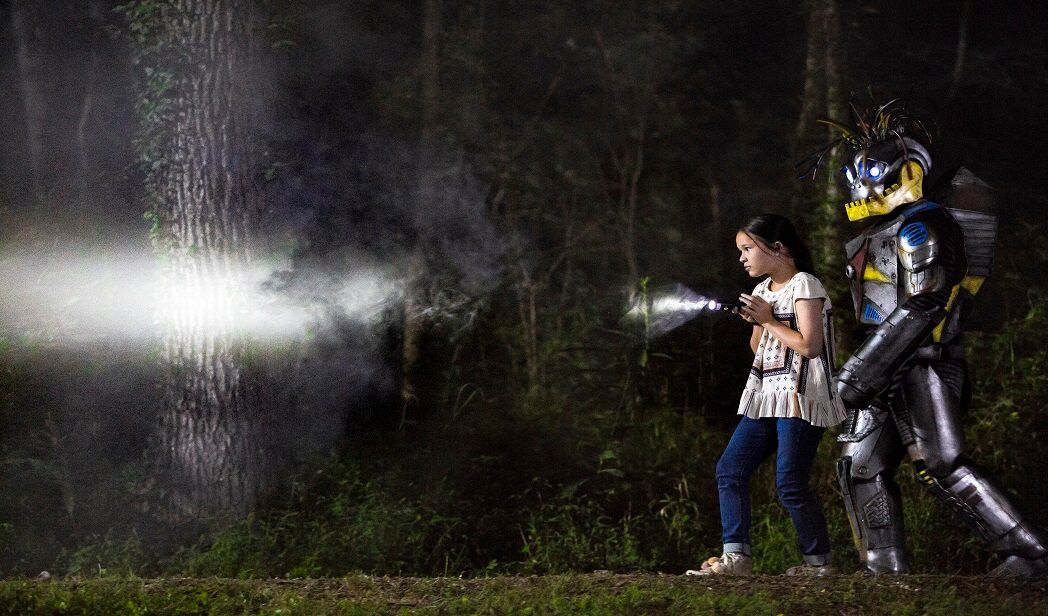
A: I learned how to put out fires and that really is going to be your number one job when you make a feature. You will plan and plan and plan and plan and then it will all go down the drain and you’ll have to call some audibles. However, that becomes quite simple to do when you know your story really well because of all the planning you’ve done. That’s what I learned. Planning is a must, but be prepared for all of it to go down the drain.
Q: Any advice to writer’s considering a similar approach to move into directing or producing?
A: Start now. Start small. Learn how to edit. It’s very simple now with Adobe Premiere. I taught myself how to edit and it really changed the game for me. I was able to produce so much more content for so much less.
Q: When it came to your first feature script, how do you approach structure? Do you follow any particular narrative method or model?
A: Mail Order Monster is a family film, so I definitely followed a standard 3 Act structure with it because it has to be something that kids can swallow. I find that most of the stories I’ve written tend to stay within that structure to a degree, but that’s only because that was what’s best for those stories. I think, just like anything in storytelling, it has to be customized to the story you’re telling. If you’re telling a story that connects better with the audience through a non-traditional non-linear structure, then definitely go with that. If telling your story in that way hinders people from understanding your characters and story, then maybe that isn’t the right approach.
Q: Have you ever written spec scripts and if so how did you get it out there? Did you query Producers, enter competitions, use Inktip, etc?
A: I’ve never written a spec script and have been fortunate enough to have been hired to write a film based off of Mail Order Monster and the treatment I submitted. I have searched for scripts through Inktip, though. I know a lot of fellow producers find scripts through competitions and festivals.
Q: When looking for scripts, through Inktip or elsewhere, what are you looking for and how do you decide on what to read/not read?
A: It depends. If I’m looking for a specific type of genre, then I will look for stories in that genre that I feel like have an edge or haven’t been told in that way before. As producers, we’re always looking for the edge to a script. If it doesn’t have a hook that we can pitch and sell, then it becomes very difficult for us to make it. That’s pretty much my filter for scripts. If the logline sounds like it’s something that audiences will say “Oh, I’ve never seen that before,” then I’ll read it.
Q: Any competitions or festivals in particular that you or your colleagues regard highly?
A: There are the obvious ones like the Blacklist and the bigger screenplay festivals like the Austin film festival. However, if a script is sent and it has that it won any sort of award on there, then we usually give that some merit. Generally speaking, regardless of the name of the competition or festival, your script was still chosen as a winner against others. That’s something that is given weight.
Q: Your feature has a great cast, including Charisma Carpenter, how did casting come together?
A: My fellow producer, Robert Ulrich, owns one of the top casting offices in LA with his two partners. His office, UDK casting, was essential in getting the cast I was so lucky to have had.
Q: She’s playing a very different role to what many people will be familiar with, did that present any challenges?
A: Nope. Charisma is a great actress, so she took on the role that was written very well. She’s a big collaborator so she brought a lot to the character that caused me to do rewrites on the entire script and really elevated it.
Q: You have a child star and co-star at the heart of this movie, what are the challenges involved and the logistics for things like schooling?
A: This is where the producing hat comes on because it’s important to write down the pros and cons of your shooting location. So all the kids in the film were Kentucky locals and we shot in the summer, so we didn’t need any studio teachers or schooling.
Q: I loved MOM, great family film but can be a difficult genre – what has the critical and commercial reaction been?
A: Thank you so much. Critically, it’s had a pretty solid reaction. People either love it or just like it and can see the flaws in it, which I can see every time (we shot a low budget movie with kids in 17 days lol). The overall consensus critically and commercially is that if people can watch it with kids or with a child’s point of view, they really enjoy it. They enjoy it even more if they are a stepparent. I’ve had kids who have been adopted or are step kids cry to me after seeing the movie because they related to it.
On the other hand, it turns out middle aged and young men who aren’t married or have kids don’t like it at all. Although, they weren’t really my demographic when I was making the film.
Q: Where can people see MOM and your short films?
A: MOM can be found on iTunes, Amazon Prime Video, Googleplay, Xbox, Vudu, DVD’s at Walmart (February 5) and Showtime (February 6 I think). Some of my short films can be found online at boyish.media under my name, Paulina Lagudi, and also on my Instagram TV @paulinalagudi.
Q: You’ve also worked as just the Producer on things like ‘The Lover’, how different is this when you’ve not got creative control?
A: To be honest, it’s not really my favorite. It depends on the project really. For feature films, which there are a couple coming up soon, I actually like just being a producer if I’ve been hired in that capacity. I find there’s so much creative work to be done when it comes to the marketing and distribution strategy. It was actually too much to handle when doing that on MOM and directing and producing day to day on set.
It is very different, though, because you’re not just answering to yourself. There’s a lot more personality management. But as long as the story and project is what’s at the highest priority, it all ends up working out. Ego is the enemy.
Q: What other projects are you working on now and when can we next expect to see your name on the credits?
A: As mentioned earlier, I was hired to write a feature film for a production company, so I’ve been working on that as well as two other feature scripts. Hopefully, we’ll be shooting one of them this year for me to direct and produce also. I’m also producing a couple movies with some friends of mine, which is always fun when you’re working with talented, hardworking creatives.
Q: Screenwriters get told that there are all sorts of formatting ‘rules’ that they must adhere to… any specific things that would turn you off or stop you reading a spec script?
A: Well, it has to look like a script. I know sometimes people want to get fancy, but you can’t write a script like an essay or a poem or whatever. I don’t know. It’s not fun for the reader. It’s easier if you just follow script format. I also HATE it when a script is sent and it’s clearly a first draft and has tons of spelling and grammatical issues….unless it’s my friends and they’ve told me this ahead of time. In general, if you’re sending out a first draft of your script to producers, you’re not doing yourself any favors.
Q: What’s the best and worse screenwriting/filmmaking advice you’ve been given?
A: Well, on my first draft of MOM, I was told to stop and not write lol.
Now for a few ‘getting to know Paulina’ questions
Q: What’s your favourite film? And favourite script, if they’re different.
A: I have so many favorite films, but the one at the top of my list recently is Andrea Arnold’s “Fish Tank”. Second to that is always “Shame” by Steve McQueen. I don’t have any favorite scripts that I can recall, but I did just read a script from fellow writer, Marc Prey, recently that was one of the best I’ve read in a very long time.
Q: Favourite author and book?
A: I don’t think I’ve ever stuck with reading just one author’s books other than the entire “Girl with the Dragon Tattoo” series, which I love! So besides Steig Larrson, my other favorite books are “The Shadow of the Wind” by Carlos Ruiz Zaffon, Ryan Holiday’s “Ego is the Enemy” and “Obstacle is the Way”, and John Irving’s “A Prayer for Owen Meany” (that one always stuck with me since I was a kid).
Q: Wine, Beer, Gin… or something else?
A: You just named my 3 favorite things! I love a great Gin and Tonic. My dad has a wine cellar so always grew up on wine. I really love Ports and dessert wines. My fiancé and I also love craft beers. He’s the whiskey drinker, but I still haven’t been able to get on that level.
Q: Favourite food?
A: Oof this is a hard one because I’m a huge foodie, I love to cook, AND I’m Italian. My favorite food might have to be my fiancé’s grilled bone in rib eye steak. It is pretty phenomenal. Second to that is pasta with my homemade tomato sauce.
Q: Any other interests and passions?
A: I study Krav Maga. So far, I’m two more tests away from being a blue belt. Context to that is a blue belt is two belts down from a black belt.
Q: Any final thoughts for the screenwriters of SimplyScripts?
A: This industry is a long game. It takes a lot of practice and a lot of persistence. I recently came across this quote that was very helpful to me, so I’ll share it with all of you:
“All of us who do creative work…we get into it because we have good taste. But it’s like there’s a gap, that for the first couple years that you’re making stuff, what you’re making isn’t so good…It’s really not that great. It’s trying to be good, it has ambition to be good, but it’s not quite that good. But your taste — the thing that got you into the game — your taste is still killer, and your taste is good enough that you can tell that what you’re making is kind of a disappointment to you.” – Ira Glass (an excerpt from Ego is the Enemy).
Once again, thanks to Paulina for such a great interview.
About the reviewer: Anthony Cawood is an award winning screenwriter from the UK with 4 short films produced and another 10 or so scripts optioned and/or purchased. Links to his films and details of his scripts can be found at www.anthonycawood.co.uk.

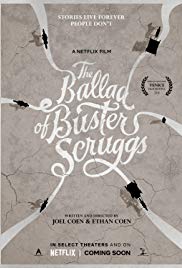
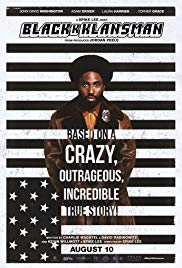
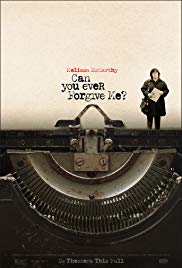
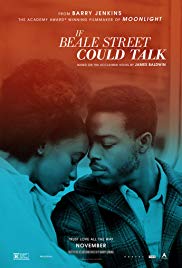
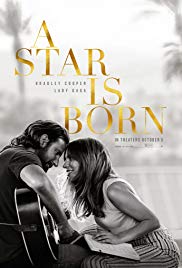
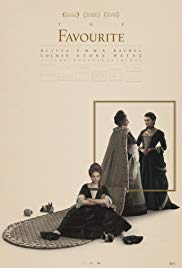
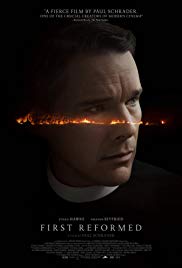
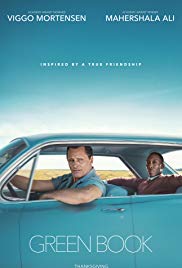


 Move over cat lady… because we have a chicken lady in this one! We are introduced to Addilyn in a chicken coop, singing to her little chicken. From the beginning, we get a feeling that she weirdly fits right in here. Then enters conflict as her lesbian lover, Cora, mentions she’s found a good home for their chickens. Cora even jokes about ‘cooking’ a roast chicken. None of this sits good with the chicken lady. Not only a great vehicle for conflict, but I believe this little scene is a catalyst that heats up Addilyn’s strange sleep patterns of parasomnia: drawing and even scratching chicken drawings onto the walls of the bedroom! Realizing Addilyn’s symptoms are growing out of control, Cora buys a sketchbook then decides it’s time to call in the shrink, but it can’t be soon enough, because the last night in a manic chicken rage, Addilyn smothers her lesbian lover with a pillow to a choir of clucking chaos. When the clock sounds in the morning, Addilyn rolls Cora over to find a chicken sketch scratched into her face. As Cora lies there dead, a live chicken appears at the end of the bed. Addilyn laughs maniacally.
Move over cat lady… because we have a chicken lady in this one! We are introduced to Addilyn in a chicken coop, singing to her little chicken. From the beginning, we get a feeling that she weirdly fits right in here. Then enters conflict as her lesbian lover, Cora, mentions she’s found a good home for their chickens. Cora even jokes about ‘cooking’ a roast chicken. None of this sits good with the chicken lady. Not only a great vehicle for conflict, but I believe this little scene is a catalyst that heats up Addilyn’s strange sleep patterns of parasomnia: drawing and even scratching chicken drawings onto the walls of the bedroom! Realizing Addilyn’s symptoms are growing out of control, Cora buys a sketchbook then decides it’s time to call in the shrink, but it can’t be soon enough, because the last night in a manic chicken rage, Addilyn smothers her lesbian lover with a pillow to a choir of clucking chaos. When the clock sounds in the morning, Addilyn rolls Cora over to find a chicken sketch scratched into her face. As Cora lies there dead, a live chicken appears at the end of the bed. Addilyn laughs maniacally. 